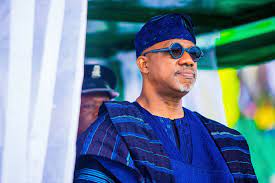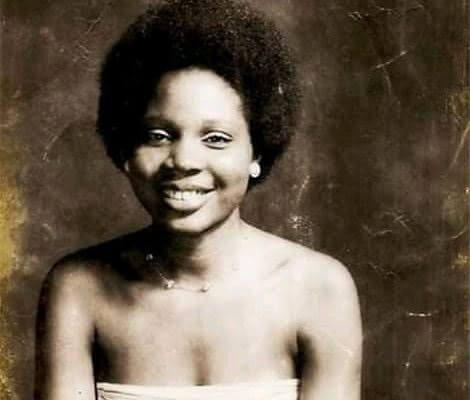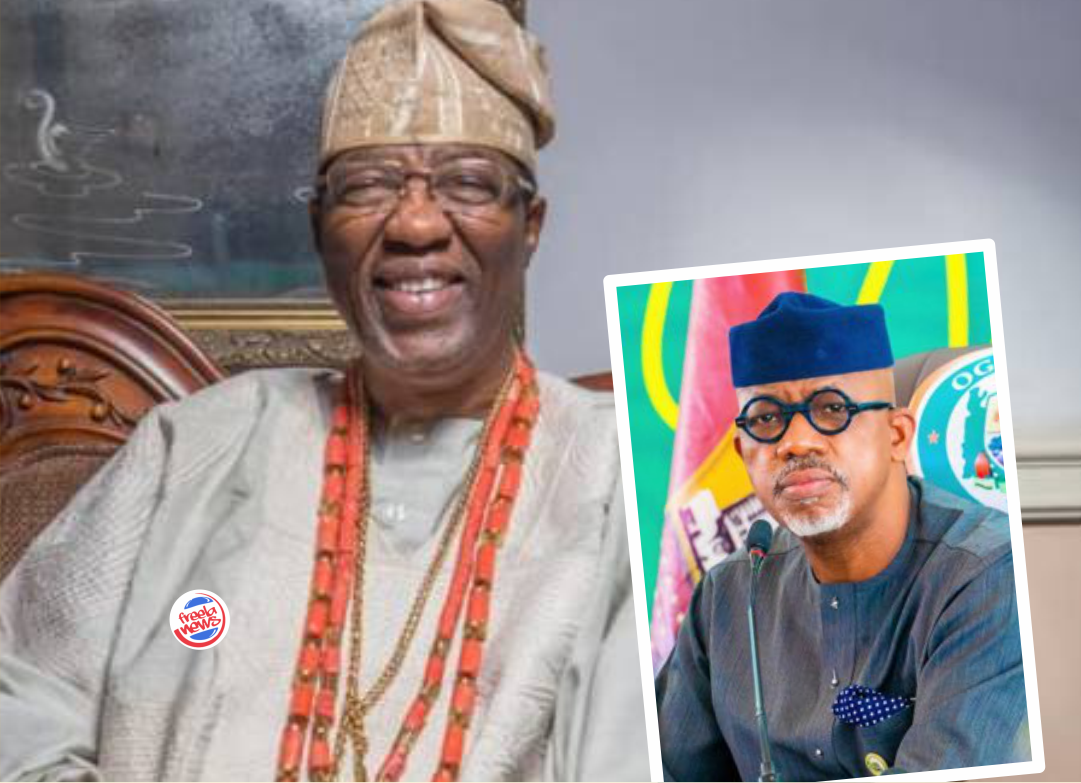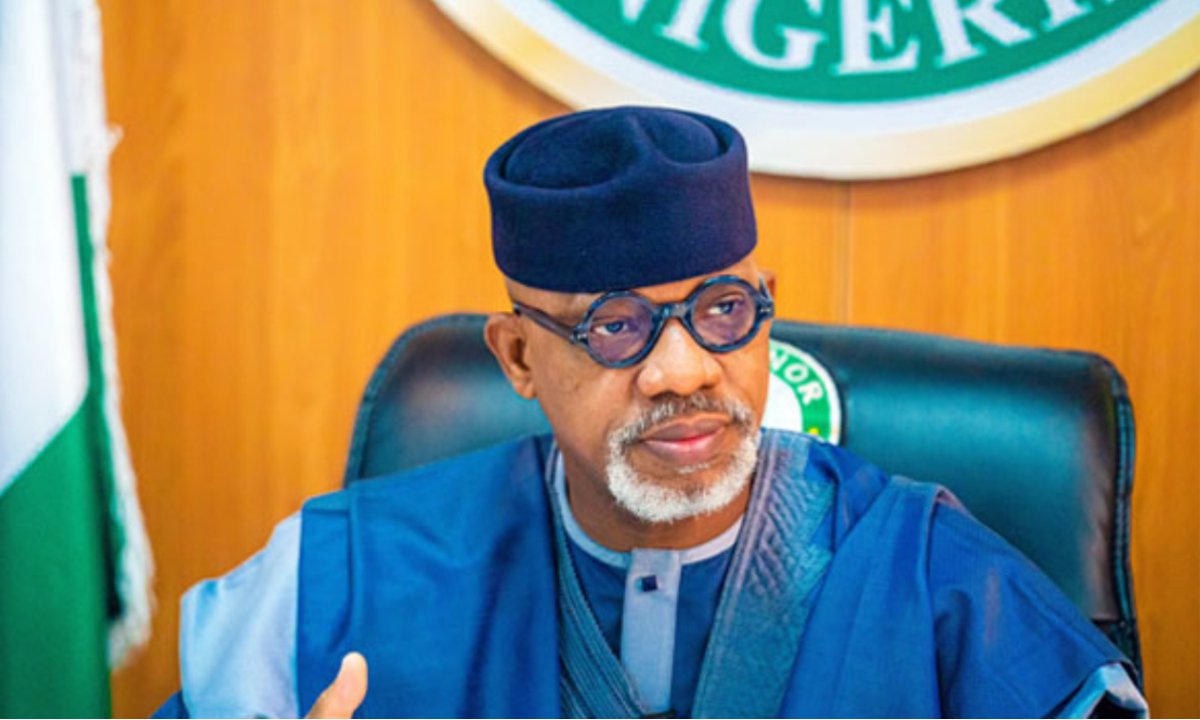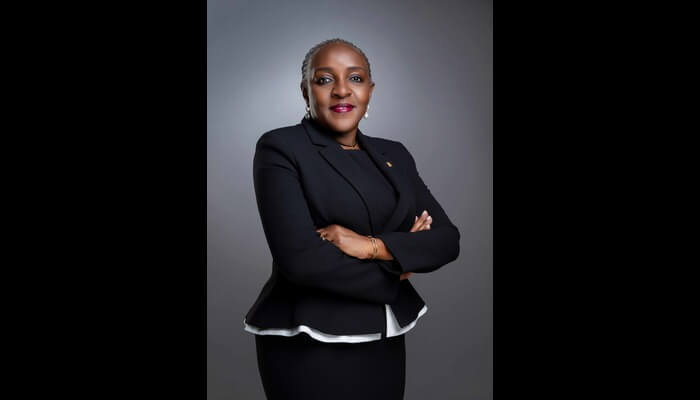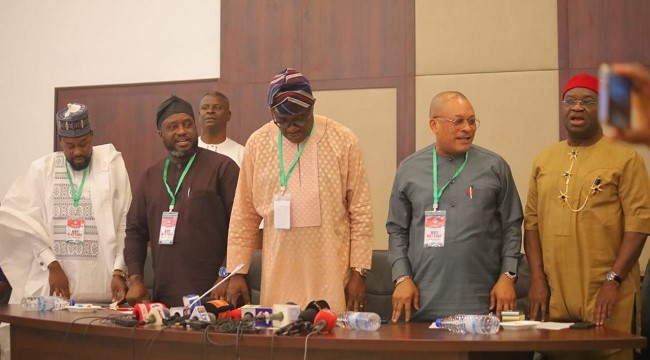One of the first actions of Major-General Ibrahim Babangida (b. 1941) as military Head of State was to allow Nigerians to decide, through public debates, whether to accept the $2.5 billion International Monetary Fund (IMF) loan the Muhammadu Buhari (b. 1942) government had been negotiating for.
After the terror of the Buhari years, Nigerians appeared to have found a statesman in military uniform.
Interestingly, Babangida’s friendliness and his appealing gap-toothed smile in plain disparity to the strict and serious Muhammadu Buhari, his predecessor – made it easy for him to be believed. The distinction between the two regimes in fact ran much deeper than personality coincidences. Babangida, in action, proved to be the complete opposite of his predecessor.
The new Head-of-State threw open prison doors, setting free hundreds of the Second Republic politicians convicted and jailed by Buhari.
Ibrahim Babangida repealed the obnoxious Decree No. 4 of 1984 with which the Buhari regime had shackled the media and also promised to run an open government that is uncharacteristic to military one and responsive to the longings and aspirations of all Nigerians – a departure from the high-handedness of the Buhari/Idiagbon regime.
Less than a few months after his take-over in 1985, Nigeria’s foreign debt had swollen to $18 billion, an increase from $3.4 billion during the President Shehu Shagari (1925-2018) presidency in 1980. It would eventually rise beyond $30 billion by the end of the decade with external reserves dwindling to less than $2 billion.
For three years running, oil prices had been in freefall for and in January 1986 they finally collapsed to less than $20 per barrel, a record low since the start of the 1980s.
However, Ibrahim Babangida made all the right noises about reviving the economy, and in his Independence Day speech on October 1, 1985, when he was barely two months old in office, the military Head of State declared a state of economic emergency for the next 15 months. That speech, as most Nigerians were made to believe, who go on to lay down a comprehensive plan for economic reconstruction.
A suspension on new foreign debt, promotion of agriculture and industrial development, restriction of importation to essential commodities, financial sector reform, and privatization made up the plan that would, according to the Ibrahim Babangida regime, revamp the economy.
No other government in Nigerian history has presided over such a major expansion of government bureaucracy as the Ibrahim Babangida administration.
The Minna-born military Head of State was a master of the progressive push and aggressive initiatives of government to address poverty and motivate rural residents. His government rolled out programmes after programmes in an effort to make its promises to run an open, people-facing government come true.
Babangida created the Mass Mobilization for Self-Reliance, Social Justice, and Economic Development (MAMSER) in 1986.
In 1987, the Directorate Food and Rural Infrastructure Directorate (DFFRI) was established to promote agriculture and transform the rural landscape of Nigeria through the provision of modern infrastructure.
In subsequent years, Ibrahim Babangida would go on to establish the National Directorate of Employment (NDE), National Economic Reconstruction Fund, Peoples Bank of Nigeria, National Board for Community Banks, Nigerian Deposit Insurance Corporation (NDIC), Nigeria Export-Import Bank (NEXIM), and the Urban Development Bank.
With time, Ibrahim Babangida’s fiscal prudence disappeared: billions of naira were poured into an endless transition programme, and in the early 1990s, $12,000,000,000 (twelve billion dollars) worth of windfall crude oil revenue, due to the Gulf War that led to an increase in oil price, could not be accounted for.
Babangida also mastered the art of giving out patronage through political appointments, which was mostly aimed at leading opposition members, and a shady allocation of lucrative oil blocks.
Just months after vowing to operate a government by consultation with the people, Ibrahim Babangida secretly-and arbitrarily-brought Nigeria, an avowed secular state, into full membership of the Organization of Islamic Conference (OIC), an organization that defines itself as the Muslim world’s collective voice.
Babangida regretted the important position that the public sector has played in economic development, with hardly any tangible results to support this position.
Ironically, the “evil genius” would go on for the next five years to oversee an enormous expansion of government.
In spite of his deference to the willingness of Nigerians to refuse the International Monetary Fund (IMF) loan, Ibrahim Babangida surreptitiously implemented some of the most drastic conditions of the loan – a devaluation of the Nigerian naira, and the abolition of subsidies, the chief of which were the petroleum subsidies.
Five students of the Ahmadu Bello University, Zaria, were assassinated in 1986 when mobile policemen invaded the campus to quench anti-IMF demonstrations.
General Ibrahim Babangida told Nigerians that there was a great need for a belt-tightening: the excruciating injection that would lead to vibrant economic health – an obligatory dark lining before a wave of prosperity.
Such changes, which he called the Structural Adjustment Program (SAP), came into force in 1986, with a far-from-pleasant impact on the Nigerian people. Purchasing power dwindled, inflation rose, and the eradication of the middle-class began, which eventually led to the SAP riots three years later in 1989.
However, the biggest shortcomings of Ibrahim Babangida were in two main areas: his record on human rights and his political transition programme.
A group of soldiers, including his close friend Mamman Jiya Vatsa (1940-1986), were arrested in December 1985, on charges of planning to overthrow the 4-month old Ibrahim Babangida government.
On March 5, 1986, Vatsa’s colleagues in poetry, Wole Soyinka (b. 1934), Chinua Achebe (1930-2013), and John Pepper Clark (b. 1935) decided to visit the Head of State to beg for mercy after the former had been convicted and sentenced to death. However, Babangida told the trio that he was determined to do everything in his power to save his dear friend.
Hours later, Vatsa was executed along with the other suspected plotters.
As opposition to the rule of Babangida rose, so did his contempt for dissent, regularly shutting down or banning media houses; and intimidating journalists, civil society, and labour groups using state instruments such as the State Security Service, Directorate of Military Intelligence and the Police).
Babangida also promulgated a series of punitive decrees aimed at quenching all criticism, and he did not hesitate to deport foreign critics on occasion.
On October 19, 1986, frontline journalist Dele Giwa (1947-1986) was murdered by a letter bomb in Lagos. Preliminary police investigations stated that senior officers of Babangida’s intelligence services, who had hounded Giwa in his final days, had questions to answer regarding Giwa’s death. The mystery of the Giwa assassination remains unsolved till date.
One of the most important things Ibrahim Babangida would be remembered for is the complicated transition programme whose terminal date quickly became a mirage – first in 1990, then in 1992, and then in 1993.
General Ibrahim Babangida had inaugurated a Political Bureau early in his regime to kick off, as it were, the national debate about a viable future political culture and framework for Nigeria.
A Constituent Assembly soon followed the Political Bureau, which in 1989 crafted a new constitution for the country.
He also founded two political parties by presidential decree, the Social Democratic Party, and the National Republican Convention, in 1989.
General Ibrahim Babangida then published a controversial list of influential politicians in 1991 that he said were banned from taking part in the transformation programme.
He cancelled the results of the presidential primaries of the parties in October 1992, triggering the holding of new primaries in March 1993.
On June 24, 1993, he annulled the June 12, 1993, presidential election results, believed to have been won by Chief MKO Abiola (1937-1998), a billionaire businessman.
Nigerians had already had enough of his trickeries by this time, and violent demonstrations, especially in the South West forced him to step aside on August 27, 1993.
This time, he reluctantly relinquished power exactly eight years after he had grabbed it but in his usual Maradona style in installing an interim national government headed by Chief Ernest Adegunle Oladehinde Shonekan (b.1936), a British-trained lawyer and businessman.
In less than three months, Ernest Shonekan resigned and the interim national government crumbled. Subsequently, another military government, led by General Sani Abacha (1943-1998), was formed. Nigerians would wait for another six years before democracy eventually returned when a former military Head of State, Olusegun Obasanjo (b. c.1938) was sworn in as the nation’s first president of the First Republic on May 29, 1999.
Sources
How Dele Giwa was Bombed to Death in 1986.
Gargan, Edward (1985). Nigerians Debate a Proposed Loan. Accessed, July 20, 2020.
Ogunlesi, Tolu (2010). The Babangida Years. Accessed, July 20, 2020.
Weller, Robert (1985). Nigerian leader says he may reject IMF loan. Accessed, July 20, 2020.
Reuters (1986). Parcel bomb kills Nigerian Journalist accused of plotting. Accessed July 20, 2020.

Freelanews is a potpourri of news, entertainment, business, events and photos. This is no fake news.








